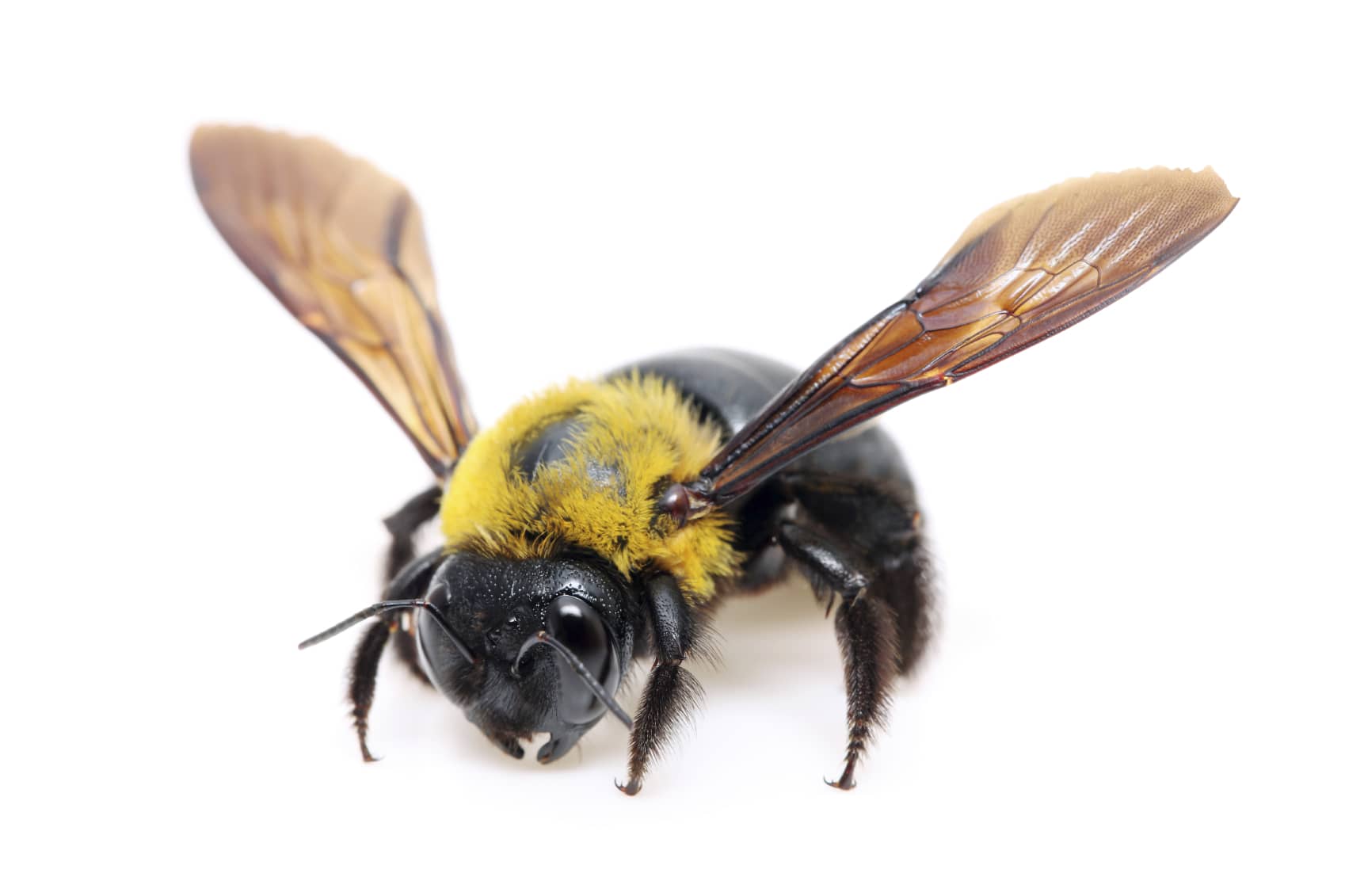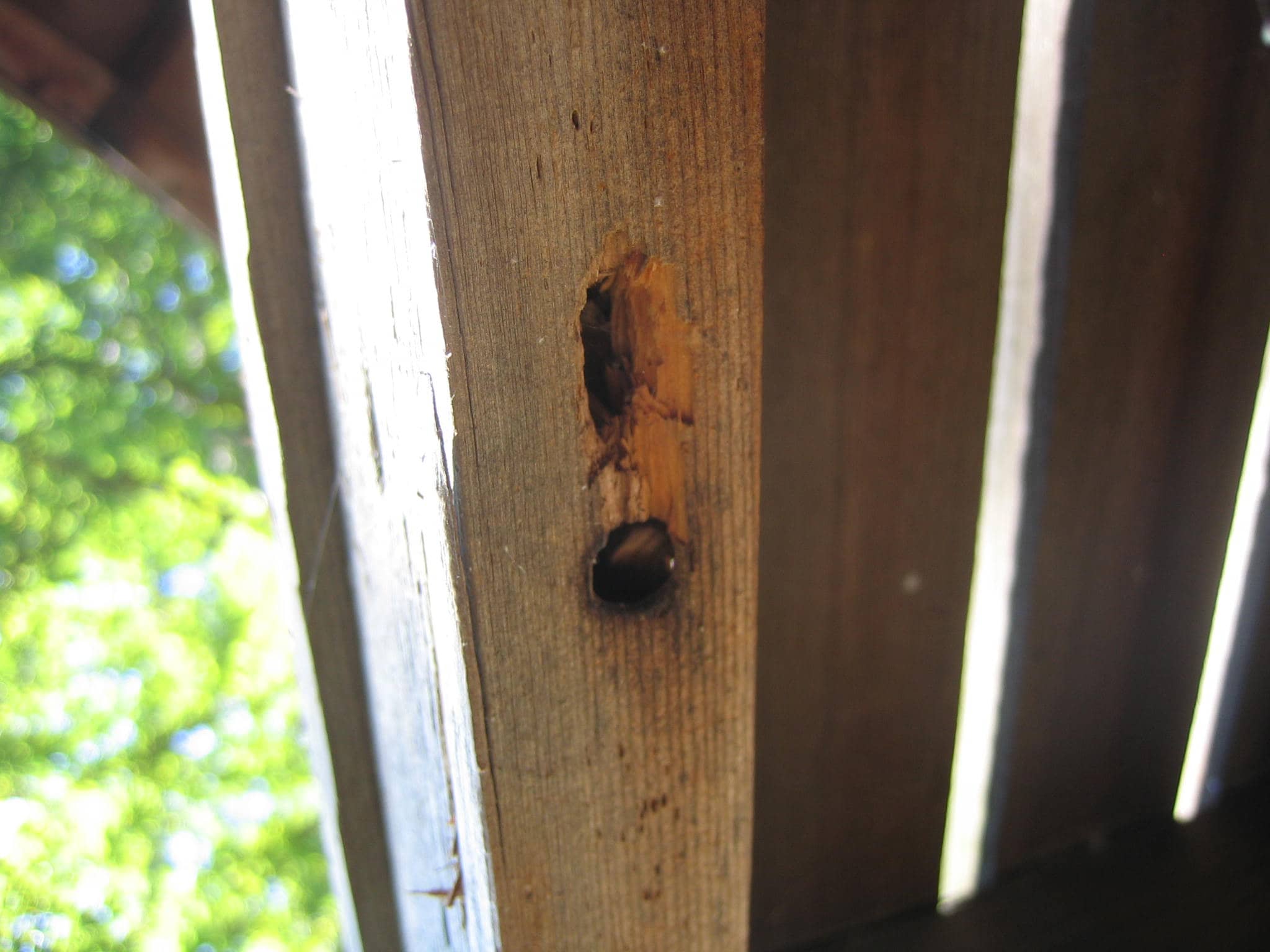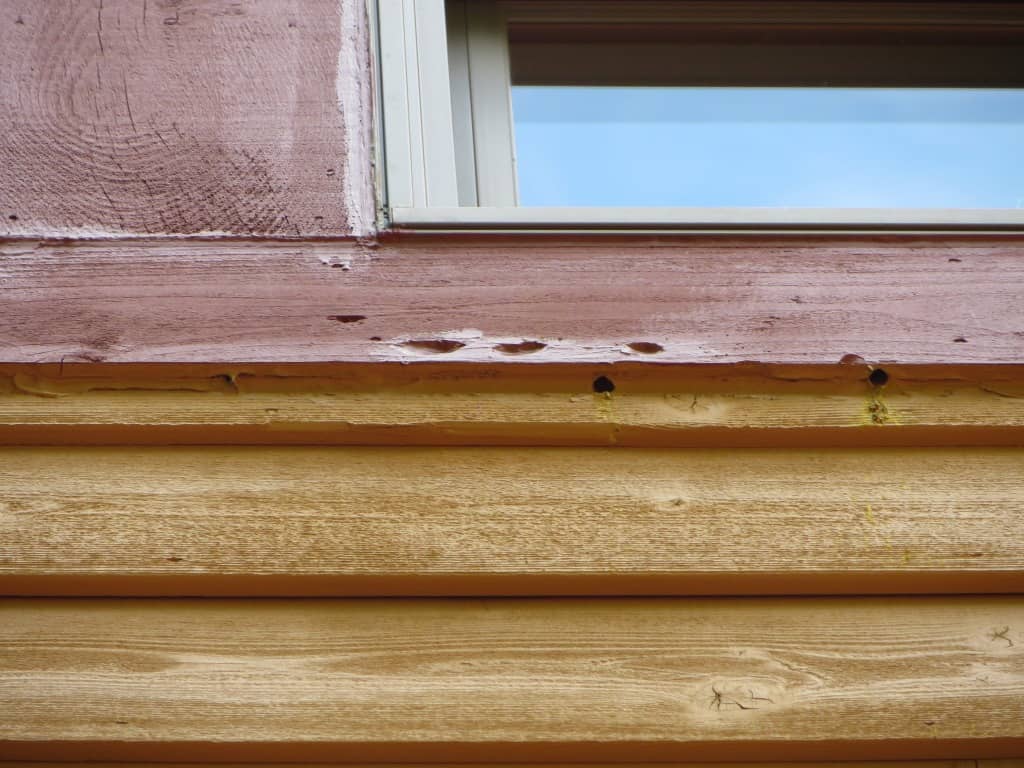Get a free estimate
If you have questions about our services, plans, or pricing we are here for you. Fill out the form below and we will communicate with you by email (and of course provide you with a free estimate).
DECEMBER 09 2021 / HOME
Big, bold, and buzzing—three innocuous words describing the frightening and seemingly “aggressive” force behind the Carpenter bee. A strong contender for most loathed springtime enemy in the DMV, these three simple truths about carpenter bees may actually surprise you.

It’s what carpenter bees do, second to springtime pollination. Shiny, black in color, and resembling a large bumblebee, the adult male carpenter bee “hovers” while he patrols an area seeking a suitable female mate.
Curious in nature, it’s not unusual for the male carpenter bee (upon discovering you within his territory) to fly in and hover only inches from your face. The Good News:
Male carpenter bees don’t sting! Still can’t get out of the way fast enough? Try tossing a small object away from you – interestingly enough, the carpenter bee has a foolish eye for almost anything that moves.
Ever notice yellow-brown smatterings on the siding of your home, perhaps beneath the gutter or under the eaves? This mess is caused by carpenter bee feces, and it is incredibly difficult to remove.
In some cases, a power washing doesn’t even come close to cleaning carpenter bee poo! Discovering yellow-brown stains on the side of your home, however, is a good indicator that a carpenter bee problem exists. Look high and low for this telltale sludge in an effort to locate carpenter bee nesting sites.
The female carpenter bee prepares a nest for her young unlike no other and the seriousness of her mission wouldn’t be complete without a tool-belt fit for a woodworker!
She alone is responsible for grinding her mandibles against the wood to chisel out nearly perfect dime-sized entrance holes and 6-8 inch galleries in which to lay her eggs.
Generally preferring wood that is either unpainted or weathered, the female carpenter bee will return to the same nesting site year after year. Who wouldn’t after all that work?
Tip: If you discover coarse, sawdust-like material collecting on surfaces, you might have a carpenter bee problem.
 |
 |
Carpenter bees are beneficial pollinators and pose a limited sting threat. They generally only become a nuisance when they make their nests inside wood siding, fascia boards, wooden patio furniture, along with privacy fencing, the undersides of decking, children’s swing sets, and other “attractive” wooden structures.
Your best defense against carpenter bees is prevention by maintaining wooden surfaces all year long:
1. Remove and replace damaged wood with pressure-treated or chemically-treated lumber
2. Maintain all painted surfaces, making sure to pre-fill nail holes and cracks with caulk
3. When carpenter bee infested wood cannot be replaced, pesticide applications can be targeted to individual nesting galleries
4. Post-treatment holes and galleries may be sealed with caulk or wood filler and repainted
Carpenter bees are best dealt with in the springtime. Professionals from American Pest are trained to inspect for breeding sites and will treat the galleries where larvae are developing.
Sometimes more than one application can be anticipated during peak months, but the goal is always to treat the nesting areas. It is completely normal to continue to see some activity from carpenter bees after the initial treatment.
In the fall, the galleries can be filled and painted or stained to deter activity from new bees the following spring. If you would like more information on the best carpenter bee control in the Maryland, DC, and Virginia regions, please contact us.